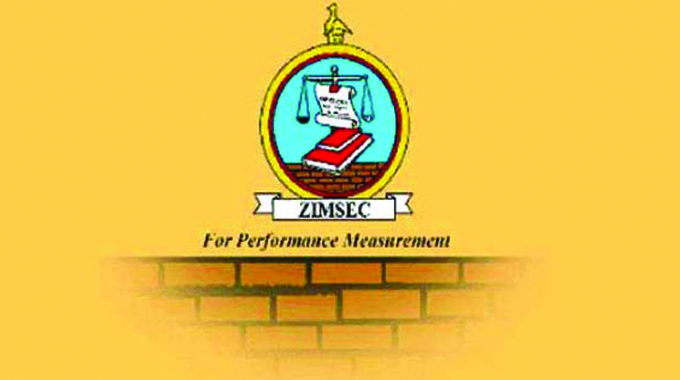Council schools pass rate plummets

Thandeka Moyo-Ndlovu, Senior Reporter
THE GRADE Seven pass rate at Bulawayo City Council-run schools went down by nearly 8 percent in 2022 with Malindela Primary School in Pumula North suburb being the best-performer.
In 2021, the pass rate at council’s 29 schools stood at 55,92 percent and fell to 48,06 percent last year, sliding by 7,86 percent.
Zimbabwe recorded a 1 percent drop in its pass rate; 40 percent last year compared to 41 percent recorded in 2021.
In Bulawayo, Malindela Primary School came out as the best performing council learning institution with 92,45 percent of its learners passing all six subjects with 5 or better.
The school has previously also come out on pole position. The perennial worst performing school, Aisleby, recorded a slight improvement from zero percent to 13,3 percent.
According to council, Aisleby’s pass rate has remained lower than 20 percent for the past 10 years except in 2018 when it stood at 60,78 percent.
Located about 7km from Trenance suburb, Aisleby Primary School is surrounded by a number of illegal settlements whose occupants make up a majority of parents whose children learn at the school.
Recent council minutes show that a total of 5 069 learners registered and wrote ZIMSEC Grade Seven National Examinations in all 29 primary schools last year.

Zimsec
“The recently published results indicated that 48, 06 percent which translates to 2 427 learners passed all the six examinable subjects with 5 or better. It was also being noted that the 2022 group was the second to write the Competence Based Curriculum Junior Examinations,” said the director housing and education Mr Dictor Khumalo in a report.
“There was a slight drop in the pass rate from 55,92 percent to 48,06 percent in 2022 compared to 2021. The 2022 candidates were affected by Covid-19 in both 2020 and 2021 which saw disruptions in the school calendar. Learning time was minimal and some initiatives were undertaken by the Ministry of Primary and Secondary Education to ensure learners covered a lot of lost ground.”
The report also shows that a total of 11 schools had a pass rate above 50 percent while the remaining 18 had pass rates ranging from 13,33 to 49,28 percent.

Malindela Primary school
“Ndebele (89,01 percent) as usual was passed exceptionally well, followed by Social Sciences (84,14 percent), English (74,93 percent), Agriculture, IT, Science and Technology (68,31 percent), Physical Education (66,02 percent) and lastly Mathematics (57,05 percent) was the least passed subject,” he said.
The top three schools in 2022 were Malindela (92,45 percent), Mawaba in Lobengula West at second position with 70,11 percent and J.W Mthimkhulu in Magwegwe West at 63,49 percent.
“The least performing school in 2022 was Aisleby Primary with 13,33 percent, which was a slight improvement from the 2021 pass rate. St Peters (25 percent) in Pumula maintained the second position from last while Manondwane in the Nketa suburb with 42 percent was the third.
“It was noted that the competition in the top three positions in the last five years had been intense and there were always changes although some schools had been consistently in the top five,” said Mr Khumalo.
Ingubo improved from the 27th to 13th position with a pass rate of 68, 93 percent.
Nketa Primary dropped from the third position in 2021 to 10th in 2022.

Malindela Primary school
“The hard work by the learners, heads, teachers and the support from the parents was much appreciated.
“The past two academic years had not been easy but a lot of work was done to ensure learners get positive results given the effects of Covid-19. We hope that in 2023 there will not be any disturbances for better results to be achieved.
“The department together with School Development Committees is working with the School Administrators to ensure peri-urban schools attain better results,” he added.
Mr Khumalo said as part of strategies to improve the pass rate, council will encourage team teaching in schools on examination classes.
“We hope to introduce e-Learning platforms to capacitate both learners and teachers in the new learning areas or subjects. We will also promote the adoption and strengthening of library reading programmes,” he said.–@thamamoe











Comments